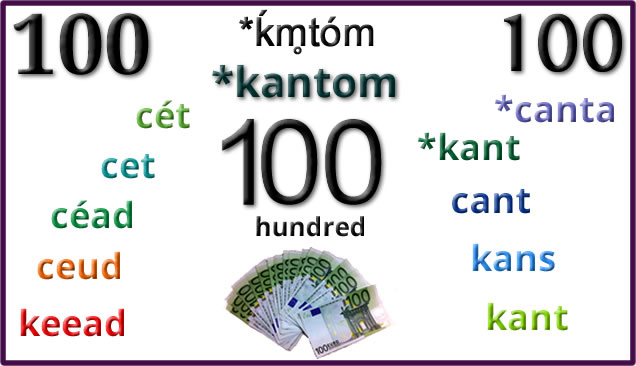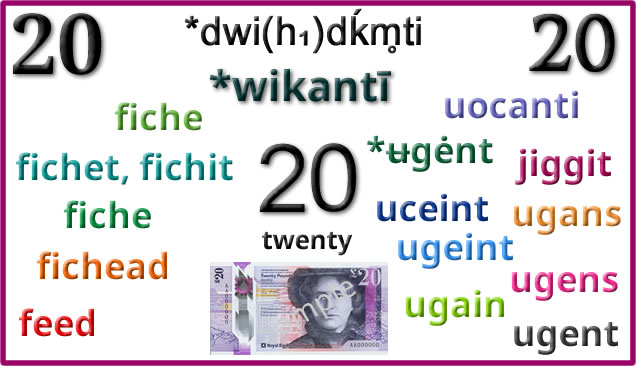Words for hard and related things in Celtic languages.

| Proto-Celtic | *kaletos = hard, strong, cruel |
|---|---|
| Gaulish | Caleti (ethnonym) |
| Old Irish (Goídelc) | calad = hard, stingy, hardship |
| Middle Irish (Gaoidhealg) | calad, calath, caladh = hard, stingy |
| Irish (Gaeilge) | caladh [ˈkɑl̪ˠə/ˈkalˠə/ˈkalˠu] = hard |
| Middle Welsh (Kymreac) | caled, kalet, calett = hard, rough, cruel caledi, kaledi = hardness, hardship, adversity kaledwch, cledwch = hardness, severity, cruelty, callousness |
| Welsh (Cymraeg) | caled = hard, rough, cruel, unfeeling, sore, severe, strict, thrifty, obstinate, abstruse, difficult, hardy, tough caledaf, caledu, caledo, cledo = to harden, dry, grow unfeeling or stubborn calededd = hardness, severity caleden = callus caledfyd = hardship, distress, adversity caled-galon = hard-hearted, callous caledi = hardness, hardship, adversity caledwch = hardness, severity, cruelty, callousness caledwedd = (computer) hardware |
| Middle Cornish (Cernewec) | cales, calas, calys = hard, difficult caletter, calatter = hardness, difficulty calessa, calassa = hardest |
| Cornish (Kernewek) | kales = difficult, hard, severe, tough kalesweyth = hardware kaletter = difficulty, hardness penn kales = obstinate, stubborn |
| Middle Breton (Brezonec) | calet, kalet = hard, deep (sleep) caletaat, kaletaat = to harden, toughen up caleded = hardness, toughness caleder, calletter, caleder = hardness, toughness, difficulty |
| Breton (Brezhoneg) | kalet = hard, raw, crude kaleted = hardness, toughness kaleter = endurance kaledenn = hard, callus |
Etymology: possibly from the Proto-Indo-European *ḱlH-eto- (cold), related to *kal- (hard) [source]. Words from the same roots include callus and callous in English, калити [kǎːliti] (to harden, temper) in Serbian, and callo (callus, corn, tripe) in Spanish [source].
| Proto-Celtic | *kroudis/*krowdi- = rude |
|---|---|
| Old Irish (Goídelc) | crúaid = hard, harsh, stern crúadach = cruel, harsh crúaide = hardness crúadaigid = to harden, stiffen |
| Middle Irish (Gaoidhealg) | crúaid, cruaidh = hard(y), harsh, stern, strict crúadach, cruadach = hard, cruel, harsh crúadagid, cruadhaigh = hardens, stiffens crúadáil, cruadhál = hardship, cruelty crúadóc, crúadhóg = hardship, strait, difficulty crúaide, cruaide = hardness, harshness |
| Irish (Gaeilge) | crua [kɾˠuə/kɾˠuəɟ/kɾˠuəj] = hard, firm, difficult, severe cruach [kɾˠuəx / kɾˠɔx] = steel cruachan = hardening cruachás = predicament, difficulty, distress cruachásach = in a difficulty, distressed cruacht = hardness, hardiness, stinginess cruara = hardware cruas = hardness, stinginess |
| Scottish Gaelic (Gàidhlig) | cruaidh [kruəj] = steel; stone anchor; hard, rocky ground cruaidh-chàs = danger, peril, difficulty, hardship cruaidh-fhortan = misfortune cruaidhead [kruəjəd] = degree of hardness cruaidheadh [kruəjəɣ] = solidifying, hardening, drying |
| Manx (Gaelg) | creoi = adamant, difficult, hardy, heartless, hard, solid, tough, bitter (frost), blistering (language) creoghey = to harden, forbear, set against creoighey = to harden, stiffen; hardening creoidys = hardihood, hardness creoighys = callosity, hardness, obduracy |
Etymology: from Proto-Celtic *krū- (blood), from Proto-Indo-European *krewh₂- (blood outside the body) [source]. Words from the same roots include crude, cruel and raw in English [source].
Words marked with a * are reconstructions.
Sources: Wiktionary, Am Faclair Beag, Online Manx Dictionary, Teanglann.ie, eDIL – Electronic Dictionary of the Irish Language, In Dúil Bélrai English – Old Irish glossary, Geiriadur Prifysgol Cymru, Gerlyver Kernewek, Dictionaire Favereau, TermOfis, English – ProtoCeltic WordList (PDF), Etymological Dictionary Of Proto Celtic









